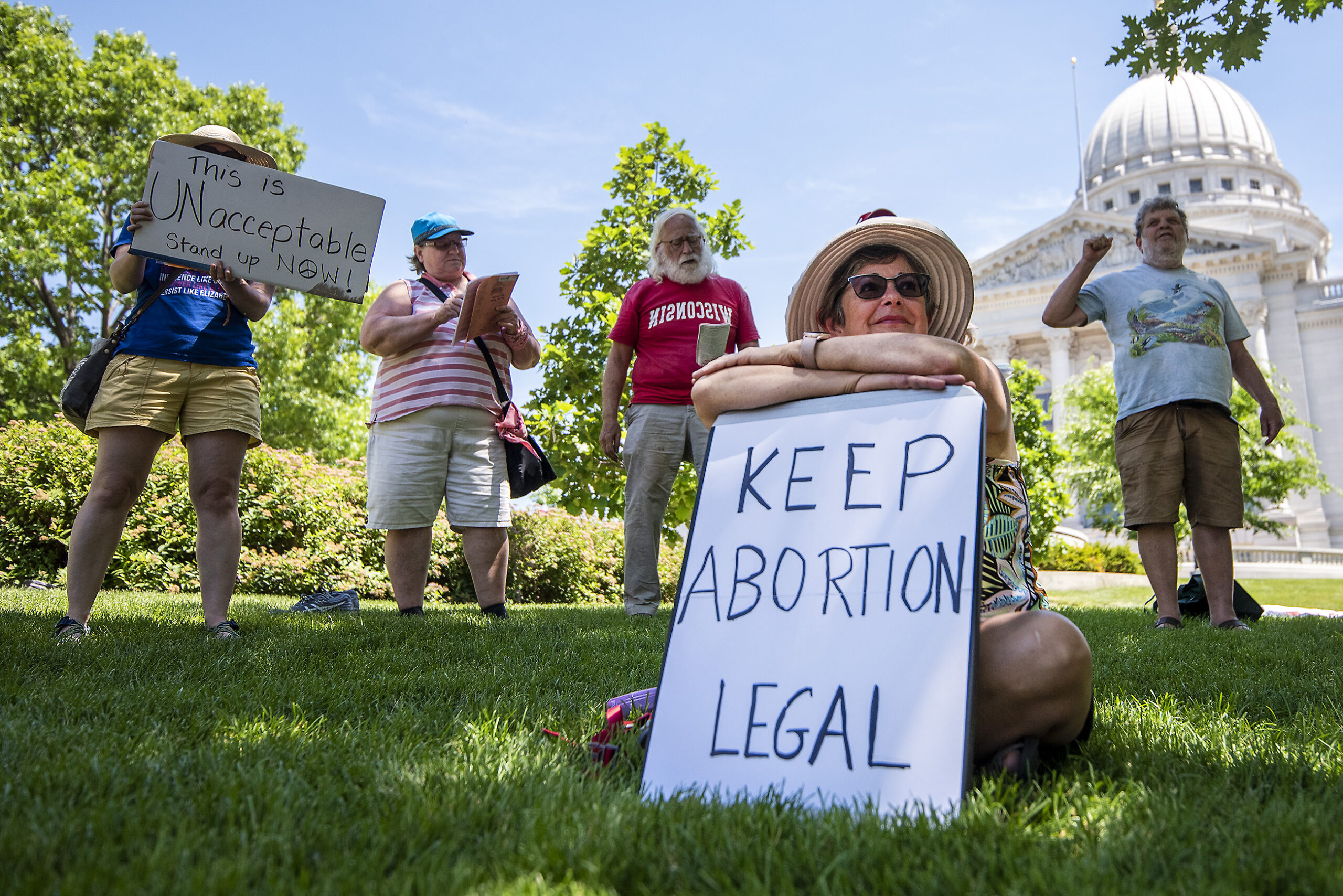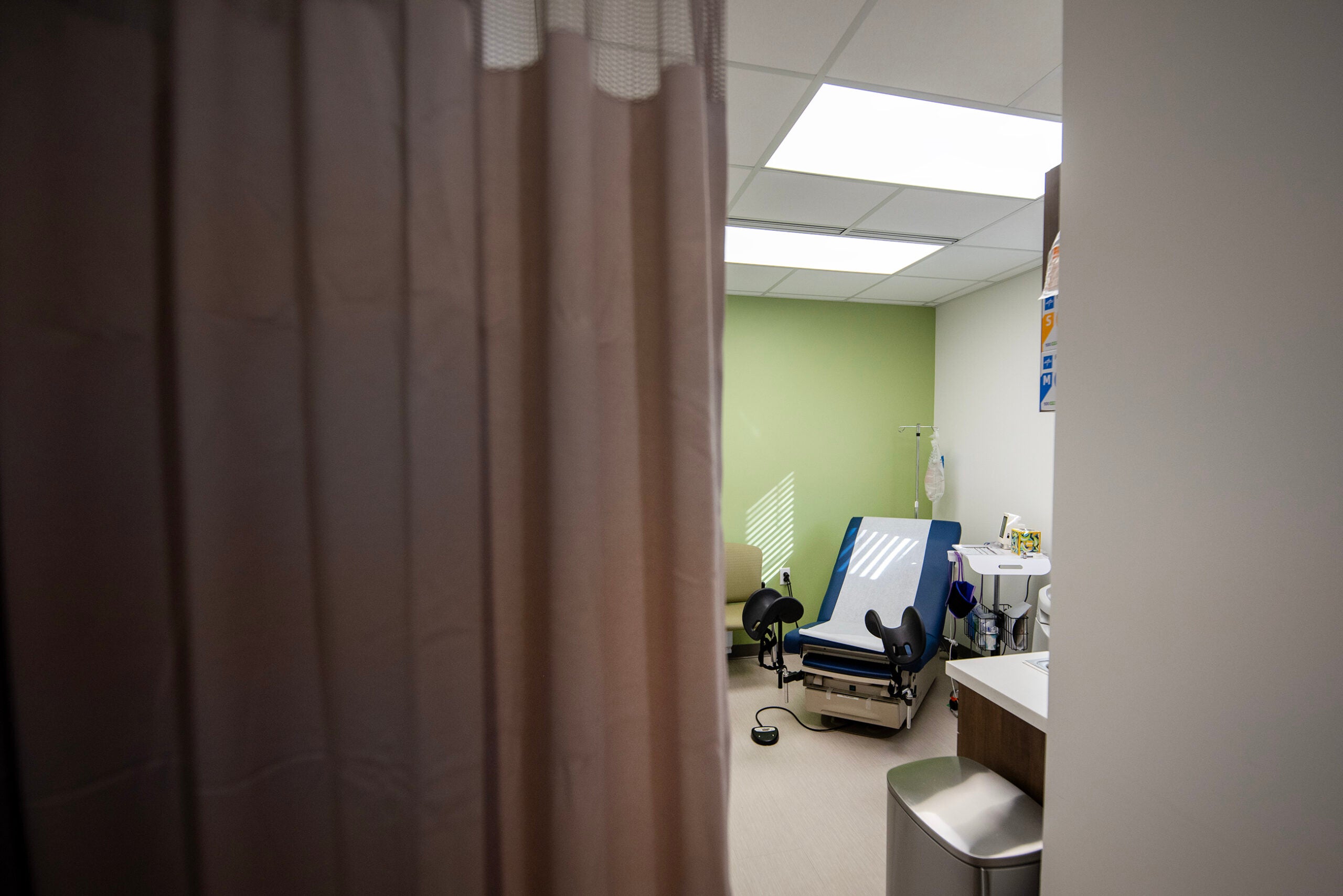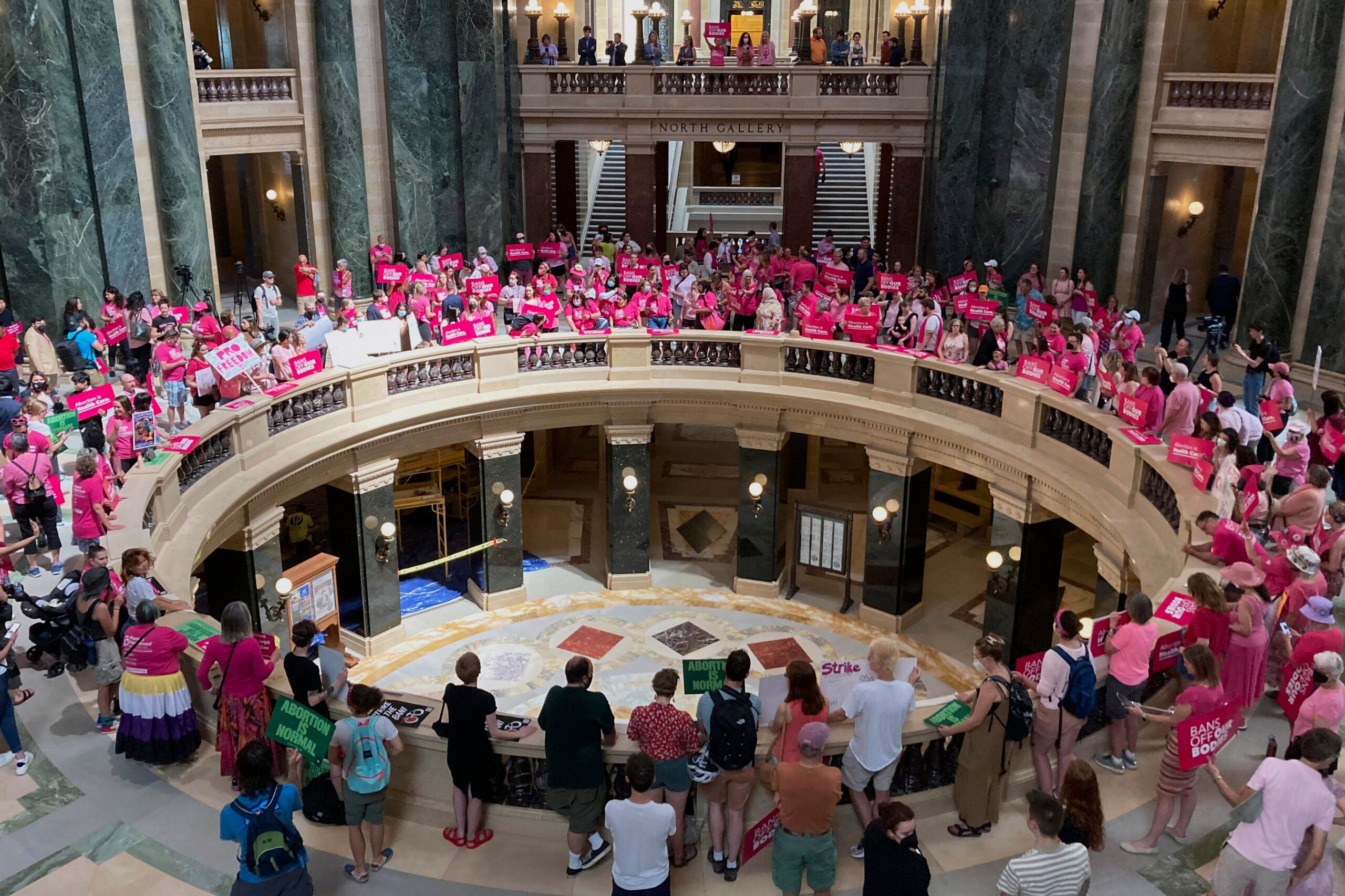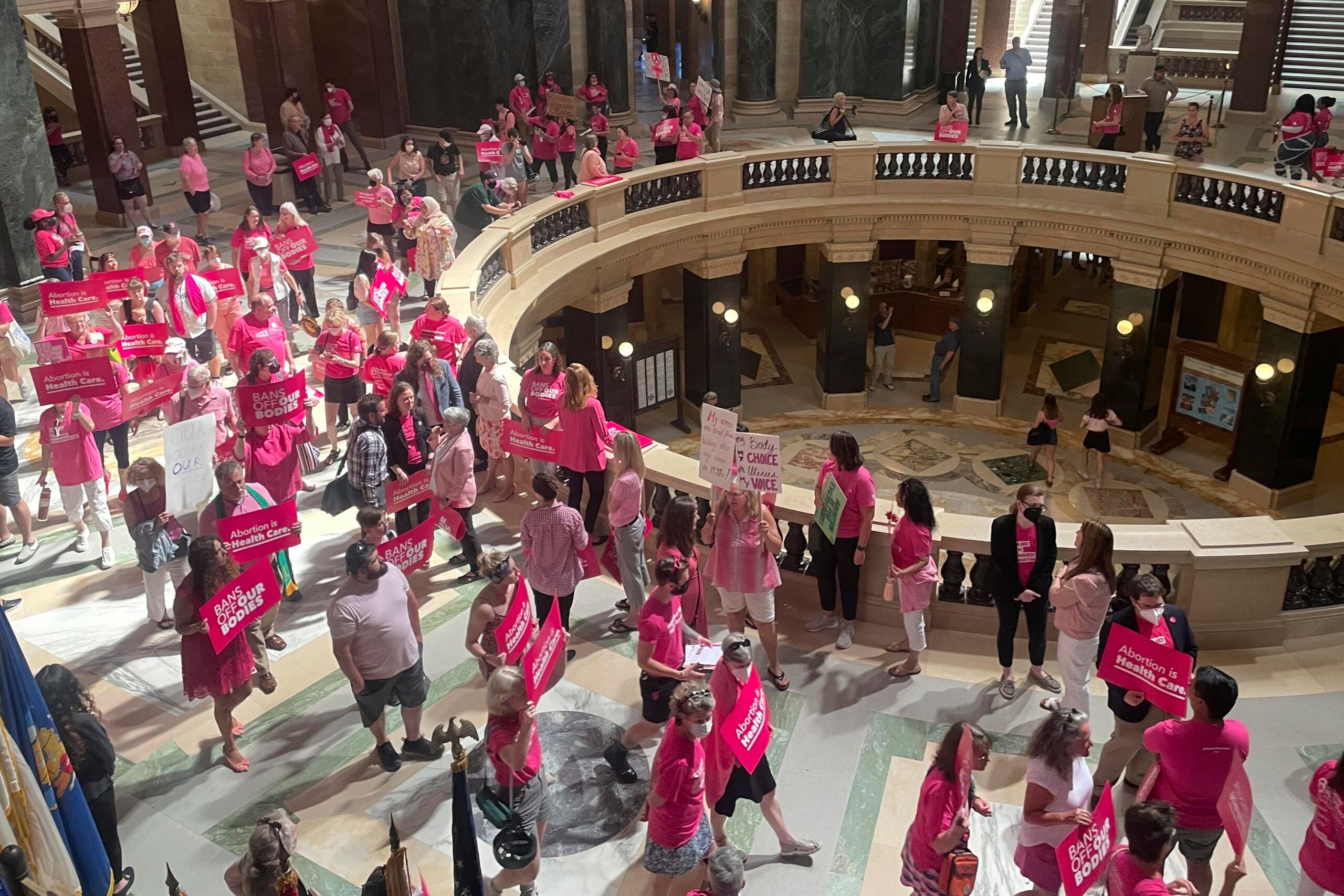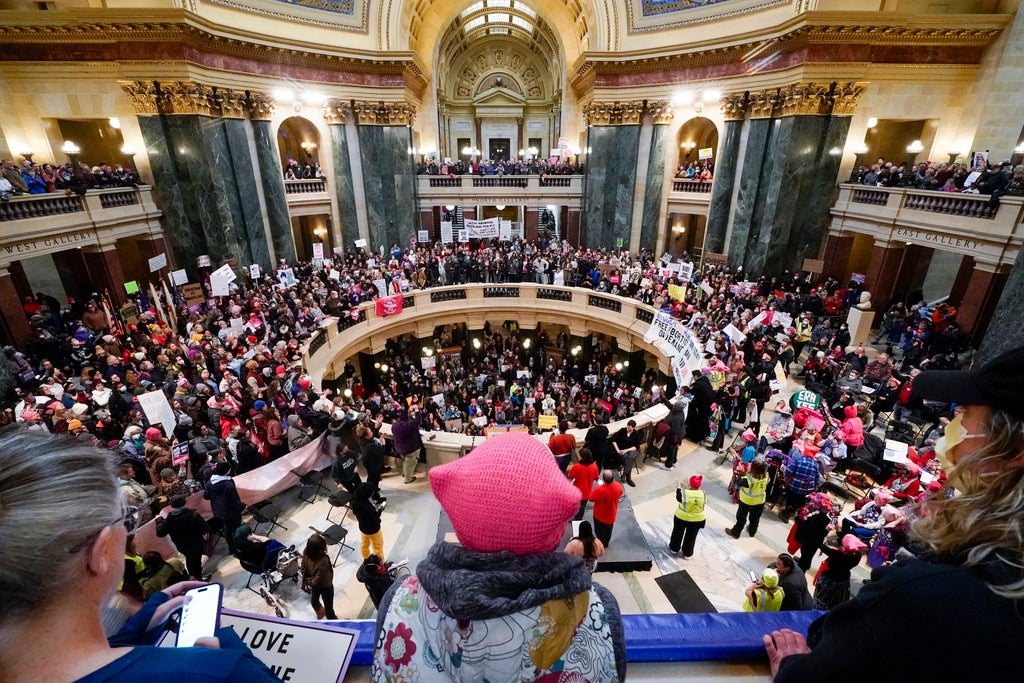Providers across Wisconsin stopped performing abortions after the U.S. Supreme Court’s decision this June in Dobbs v. Jackson Women’s Health Organization.
That’s because a long-dormant Wisconsin law banning most abortions took effect following the overturn of a national right to the procedure.
But Democratic Attorney General Josh Kaul is suing to block that state law.
News with a little more humanity
WPR’s “Wisconsin Today” newsletter keeps you connected to the state you love without feeling overwhelmed. No paywall. No agenda. No corporate filter.
Here’s what you need to know about that lawsuit and how it could affect abortion rights in Wisconsin.
What is Wisconsin’s 1849 abortion law?
A Wisconsin law, first enacted in 1849, makes it a felony to perform an abortion at any stage of pregnancy unless it’s done to save a pregnant person’s life.
Who filed the lawsuit, and what is it seeking?
Kaul filed the lawsuit in Dane County Circuit Court in June, just days after the Supreme Court’s ruling. The Wisconsin Department of Safety and Professional Services, the Wisconsin Medical Examining Board and Dr. Sheldon Wasserman, an OB-GYN who chairs that board, joined Kaul as plaintiffs.
The suit makes the case that the 1849 ban on most abortions shouldn’t be enforced by arguing that it conflicts with and is superseded by state laws passed after the 19th century legislation was approved. That includes a law passed in 1985 that criminalizes providing an abortion only if it’s done past the point of “fetal viability,” or the point when a physician determines it’s reasonably likely that the fetus will survive for a sustained amount of time outside the womb.
Who’s being sued? Why has that changed?
Kaul originally sued the Republican leaders of state Legislature. But those lawmakers — Assembly Speaker Robin Vos, Senate Majority Leader Devin LeMahieu and state Sen. Chris Kapenga — asked to be dismissed from the case, arguing they aren’t the proper targets, in part, because they aren’t responsible for enforcing the law.
Dane County judge Diane Schlipper agreed in late September to dismiss Vos, LeMahieu and Kapenga from the case after Kaul amended the lawsuit to instead name three district attorneys as defendants.
Those DAs are the top prosecutors in the only three Wisconsin counties where abortions were legally provided just before the overturning of Roe v. Wade, Kaul said.
Sheboygan County DA Joel Urmanski has indicated he would enforce Wisconsin’s abortion ban if a case presented himself, but Dane County DA Ismael Ozanne and Milwaukee County DA John Chisholm are both Democrats who’ve called the 1849 law archaic and pledged not to use it to prosecute providers.
What’s next in the case, and what’s the timeline?
None of three DAs being sued responded to requests for comment from Wisconsin Public Radio on Friday. They have until Nov. 7 to respond in court to Kaul’s amended lawsuit. Kaul tried unsuccessfully to speed up that timeline, but the judge denied his request to shorten the response deadline by 25 days.
Having Ozanne and Chisholm as defendants could be “strategic” for Kaul, because those attorneys are unlikely to put up much of a fight to defend a law they don’t want to enforce anyway, said Barbara Zabawa, an attorney who owns a firm that specializes in health law compliance.
Circuit court cases typically take months to resolve. And after that, Zabawa said, the case is very likely to head to the Wisconsin Supreme Court.
“The Supreme Court typically is willing to hear cases that have a lot of public interest,” she said.
What hurdles might the lawsuit face?
Kaul said Thursday he’s not aware of anyone who’s been charged under the 1849 law in Wisconsin since Roe’s reversal.
That’s one reason why Republican lawmakers argued in August that the case should be tossed — they noted the law had yet to be enforced against anyone in recent history.
The lack of prosecution under the law could present a “slight challenge” to Kaul’s case, Zabawa said.
“When a court is willing to hear a case, they’re bound to only hear live cases and controversies,” she said. “They are restricted in their duties to only take on cases that are actually what we call ‘ripe,’ that there is an actual person that has been harmed.”
But, Kaul says his suit is asking the judge for clarity, because there’s a legal controversy that needs to be resolved. And, even though the DAs from Dane and Milwaukee counties have pledged not to enforce the law, prosecutors with a different approach could be elected in the future, Kaul said.
“The possibility of enforcement is out there now,” Kaul said in an interview with Wisconsin Public Radio. “What that has meant is that Planned Parenthood is no longer providing services in those three counties. If we get an order blocking enforcement of that law, that would allow them to resume services.”
What’s the political backdrop of the case?
The case is likely to drag beyond the Nov. 8 general election, when Kaul is running against Fond du Lac District Attorney Eric Toney, a Republican who’s said he would enforce the 1849 abortion law.
Also running for reelection is Democratic Gov. Tony Evers, a proponent of abortion rights who’s lent his administration’s support to Kaul’s lawsuit. Evers faces Republican businessman Tim Michels, who previously said he supports the 1849 abortion law as it stands, but subsequently amended that position to say he’d support exceptions for pregnancies caused by rape or incest.
Gracie Skogman, the legislative director of Right to Life of Wisconsin, said Kaul has been “derelict in his duties” by engaging in a court battle to block the abortion law.
“Our hope is that voters vote in favor of candidates who would enforce the law who would do their duty,” she said.
Wisconsin Public Radio, © Copyright 2025, Board of Regents of the University of Wisconsin System and Wisconsin Educational Communications Board.

